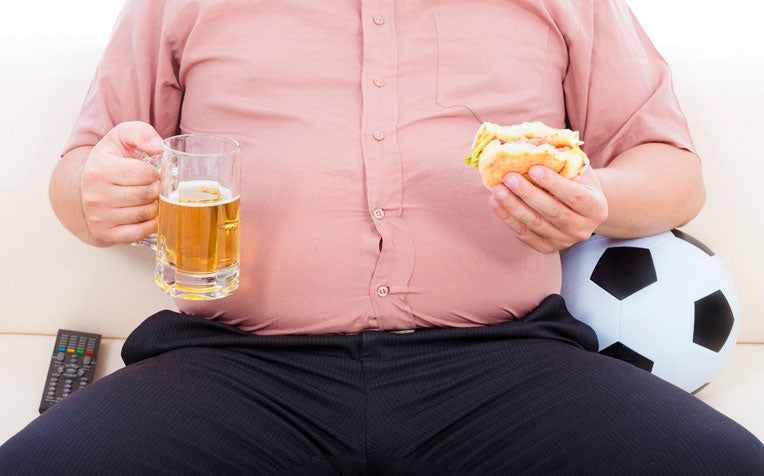
Sleep deprivation tends to lead to increased snacking.
Can sleep deprivation lead to weight gain? Yes.
According to research studies, a definite link has been found between how much you sleep and your body weight.
Studies have found that sleeping less than six hours per day, for an adult who should normally be sleeping 7-8 hours, can produce physical changes that promote weight gain.
These changes are related to:
- The hormones ghrelin and leptin, which control appetite
- Modified brain activity, linked to higher odds of making unhealthy food choices
- Plain fatigue, which reduces the willingness to engage in physical activity
The Nurses’ Health Study, which followed 68,183 middle-aged women during 16 years, found that women who slept five hours or less were 15 per cent more likely to become obese.
“There is a convincing link between sleep deprivation and weight gain. We frequently cross-refer patients between the weight management service and the sleep disorders unit,” say doctors from Obesity Centre at Singapore General Hospital (SGH), a member of the SingHealth group.
Sleep deprivation and changes in the hormones ghrelin and leptin
Appetite is regulated by two hormones, ghrelin and leptin. Ghrelin stimulates hunger while leptin tells you when you are satiated. Lack of sleep increases ghrelin levels, making you hungry, while leptin levels drop, lessening your ability to tell when you’ve eaten enough. The combined effects result in an expanding waistline.
Sleep deprivation has also been found to affect the body’s response to insulin, which can also cause a fall in the level of leptin, further dulling your satiety internal sensors.
Sleep deprivation and snacking on high-calorie foods
Research studies have found that sleep deprivation can cause changes in brain activity which can promote snacking on high-calorie and high-fat foods. A tired brain has been found to respond more strongly to foods rich in fats and carbohydrates. It just feels more “shiok” to eat junk food when you’re tired.
Additionally, a person who sleeps less has more hours to eat and make unhealthy food choices. In fact, studies have found that sleep-deprived people who were surrounded by delicious snacks tended to eat more of these than rested people, especially at night.
When we are tired, our brain just demands more calories than we actually need, and our ability to resist impulse may be blunted as well.
Sleep deprivation and decrease in physical activity
Chronic lack of sleep has also been associated with reduced physical activity. This is because sleeping less than the normal 7-8 hours is likely to leave you feeling fatigued and less inclined to exercise. With this decrease in physical activity, you burn fewer calories which can lead to weight gain over time.
Studies have found that sleep-deprived people tend to spend more time in sedentary activities such as watching TV, and less time in playing sports and being physically active.
5 tips to help you sleep well to maintain a healthy weight
- Go to bed and wake up at the same time every day.
- Stay active and get enough physical exercise daily.
- Avoid daytime napping.
- Avoid alcohol and caffeine before your bedtime.
- Have a ritual that helps you wind down before you retire to bed.
Ref. R14
Check out other articles on diet and sleep:
How Lack of Sleep Affects Your Health
Insomnia: Deadlier for Men or Women?
Snoring: When is It a Sign of Sleep Apnoea?


















 Get it on Google Play
Get it on Google Play